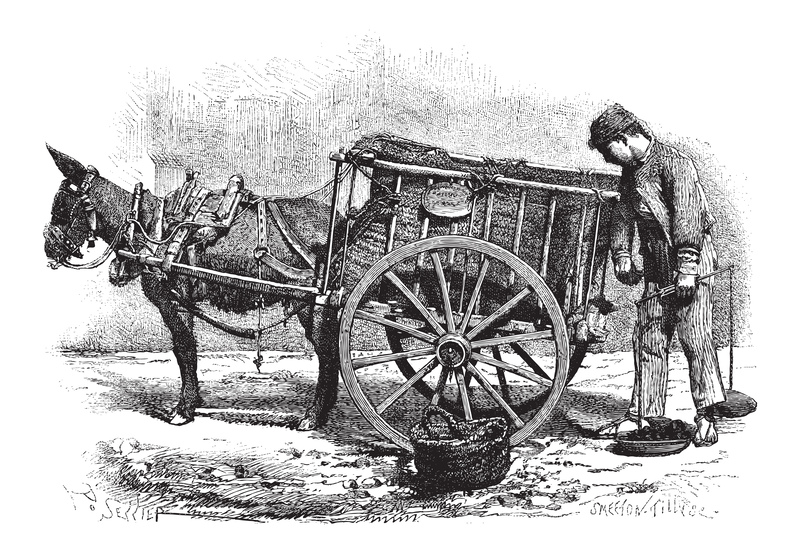Supercharge Your Home Recycling Efforts: The Ultimate Guide
Are you ready to make a bigger impact on the environment from the comfort of your own home? Supercharging your recycling habits is easier than you think! In this comprehensive guide, you'll discover practical tips, innovative ideas, and eco-friendly strategies to transform your household recycling routine. Whether you're a recycling beginner or a seasoned eco-warrior, this article provides essential insights to boost your home recycling efforts - making your home greener, your conscience lighter, and your planet healthier.
Why Home Recycling Matters More Than Ever
With global waste production soaring, recycling at home is crucial. Every year, millions of tons of recyclable materials end up in landfills or oceans due to improper sorting and lack of awareness. Enhancing your recycling practices at home can significantly reduce your ecological footprint and influence others in your community to adopt sustainable living.
- Resource Conservation: Recycling saves raw materials, conserves energy, and reduces pollution.
- Landfill Reduction: Proper home recycling diverts waste from overflowing landfills.
- Climate Impact: Recycling helps lower greenhouse gas emissions associated with the production of new materials.
- Economic Benefits: It reduces waste management costs and supports green jobs.

Assess Your Current Home Recycling Habits
Before you can improve, it's important to evaluate your present efforts. Take note of how your household discards plastics, paper, glass, metals, food scraps, and e-waste. Ask yourself:
- Do you know what your local program accepts?
- How consistent are you in sorting recyclables?
- Is contamination an issue in your bins?
- Are you reducing, reusing, or repurposing as well as recycling?
Identifying the weak spots in your current routine will help you supercharge your domestic recycling with targeted improvements.
Separate Fact From Fiction: Common Recycling Myths
- "Everything with a recycling symbol is recyclable."
Not always! The symbol means the item is recyclable somewhere, but maybe not by your local recycler. Always check guidelines. - "Rinsing containers is unnecessary."
Wrong! Dirty containers can contaminate whole batches, leading to more landfill waste. - "Plastic bags can go in the curbside bin."
No! Most recycling facilities can't process plastic bags -- drop them off separately at designated locations.
Understanding these myths helps you boost your household recycling quality and maximize what actually gets recycled.
Supercharged Sorting Strategies for Home Recycling
1. Create a Streamlined Recycling Station
Designate a convenient and clearly labeled area for recyclables in your kitchen, garage, or utility room. Use separate bins for:
- Paper and cardboard
- Plastics (by type if possible)
- Glass
- Metals
- Other (e-waste, batteries, textiles, etc.)
Clear signage on each bin helps family members and guests stay on track!
2. Know Local Recycling Rules
Rules vary widely by city and even by neighborhood. Ignoring these nuances can result in "wish-cycling" -- tossing non-recyclables in the hope they'll be recycled. Always check your municipality's guide for:
- Accepted materials
- Cleaning requirements
- Special items (like batteries, electronics, and hazardous materials)
- Plastic number guidelines
3. Prevent Contamination
Contamination ruins entire recycling batches. Avoid these common household recycling mistakes:
- Placing food-contaminated packaging into bins
- Recycling items with mixed materials (e.g., plastic/metal pouches)
- Including garden hoses, diapers, or other non-recyclables
- Throwing plastic bags in the curbside bin
Tip: Quickly rinse jars and containers and let them dry before recycling.
Advanced Techniques to Supercharge Home Recycling
1. Compost Your Food Waste
Organic material makes up approximately 30% of household waste. Instead of tossing fruit peels and coffee grounds, set up a compost bin. Home composting:
- Reduces landfill waste
- Creates nutrient-rich fertilizer
- Lowers methane gas emissions
Not sure where to start? Try countertop bins, backyard piles, or indoor worm composters!
2. Recycle Beyond Curbside
Many items don't belong in regular curbside recycling but can be recycled elsewhere. Examples include:
- Electronics and mobile devices (e-waste)
- Textiles and clothing
- Batteries and light bulbs
- Medication
Locate drop-off points through community centers or retail take-back programs to take your home recycling to the next level.
3. Supercharge With Reduce and Reuse
While optimizing your household recycling is important, reducing and reusing materials is even more impactful:
- Opt for reusable shopping bags, bottles, and containers
- Buy items in bulk to minimize packaging
- Donate old clothes, toys, and furniture
- Get creative with upcycling projects for jars, boxes, and other containers
Remember: The best waste is the waste you never create!
Tools & Tech to Elevate Your Domestic Recycling Game
1. Smart Recycling Bins
Modern recycling bins come with sorting compartments, carbon filters for odor control, and even sensors that remind you to take out the recycling.
2. Recycling Apps
Download apps like iRecycle, Recycle Coach, or your municipality's app to search for recycling instructions for any item.
3. Bio-Digesters and Indoor Composters
Space-saving countertop composters can quickly turn food waste into fertilizer without outdoor mess. Some models even fit in apartment kitchens!
Get the Whole Family Involved
Successful home recycling is a team effort. Make recycling fun and educational for kids, teens, and adults alike:
- Use color-coded bins and signs
- Incorporate recycling-themed games and challenges
- Assign recycling "champions" for each week
- Start a DIY craft project using recyclable materials
Teach Kids About Recycling
Explain the importance of recycling in simple terms, use stories and interactive activities, and recognize their efforts to build positive habits early.
Measuring Your Recycling Success
Track progress to stay motivated and see your impact:
- Monitor the waste you're diverting from landfill each week
- Set family goals - such as eliminating all plastic bottles or composting all food waste
- Compare utility and waste bills before and after your changes
- Celebrate milestones and share your achievements with friends, neighbors, and online communities
Community and Advanced Eco Initiatives
1. Start a Neighborhood Recycling Group
Work with neighbors to:
- Share tips for reducing waste and supercharging local recycling
- Organize bulk drop-offs for hard-to-recycle items
- Host eco-education events and upcycling workshops
2. Advocate for Better Local Recycling Programs
Use your voice to encourage municipalities and schools to expand recycling options, improve bins and signage, and adopt new eco-friendly technology.
Overcoming Recycling Challenges at Home
Common Obstacles and How to Solve Them
- Lack of Space: Use stackable bins or multi-compartment containers
- Confusion Over Rules: Print and post a cheat sheet near your recycling station
- Forgetting to Recycle: Place bins in high-traffic areas or use reminder apps
- Reluctant Family Members: Lead by example, share facts, and make recycling simple
Top Tips for Consistency
- Keep recycling bins clean and odor-free
- Empty bins before they overflow
- Review guidelines a few times a year
- Stay curious -- new recyclable items emerge all the time!

Eco-Friendly Purchases to Support Home Recycling
Opt for products and packaging that make recycling easier:
- Buy in Bulk: Less packaging means less recycling and less waste
- Look for 100% Recyclable Labels: Ensure containers can go in your bin
- Opt for Naked or Minimal Packaging: Choose loose produce, refill programs, and bar soaps
- Support Brands With Take-Back Programs: Many companies now accept their packaging back for recycling or reuse
Conclusion: Your Home Recycling Can Change the World
By taking these steps to supercharge your home recycling efforts, you're not just making a difference in your own household. You're setting a powerful example for your community, inspiring others, and joining a global movement toward a cleaner, greener future. Remember - every item kept out of landfill counts. With awareness, consistency, creativity, and teamwork, transforming your home recycling efforts is within your reach.
- Start today and see just how much smarter, simpler, and more impactful your home recycling routine can be!
- Together, we can all supercharge our home recycling efforts - for ourselves and for the planet.